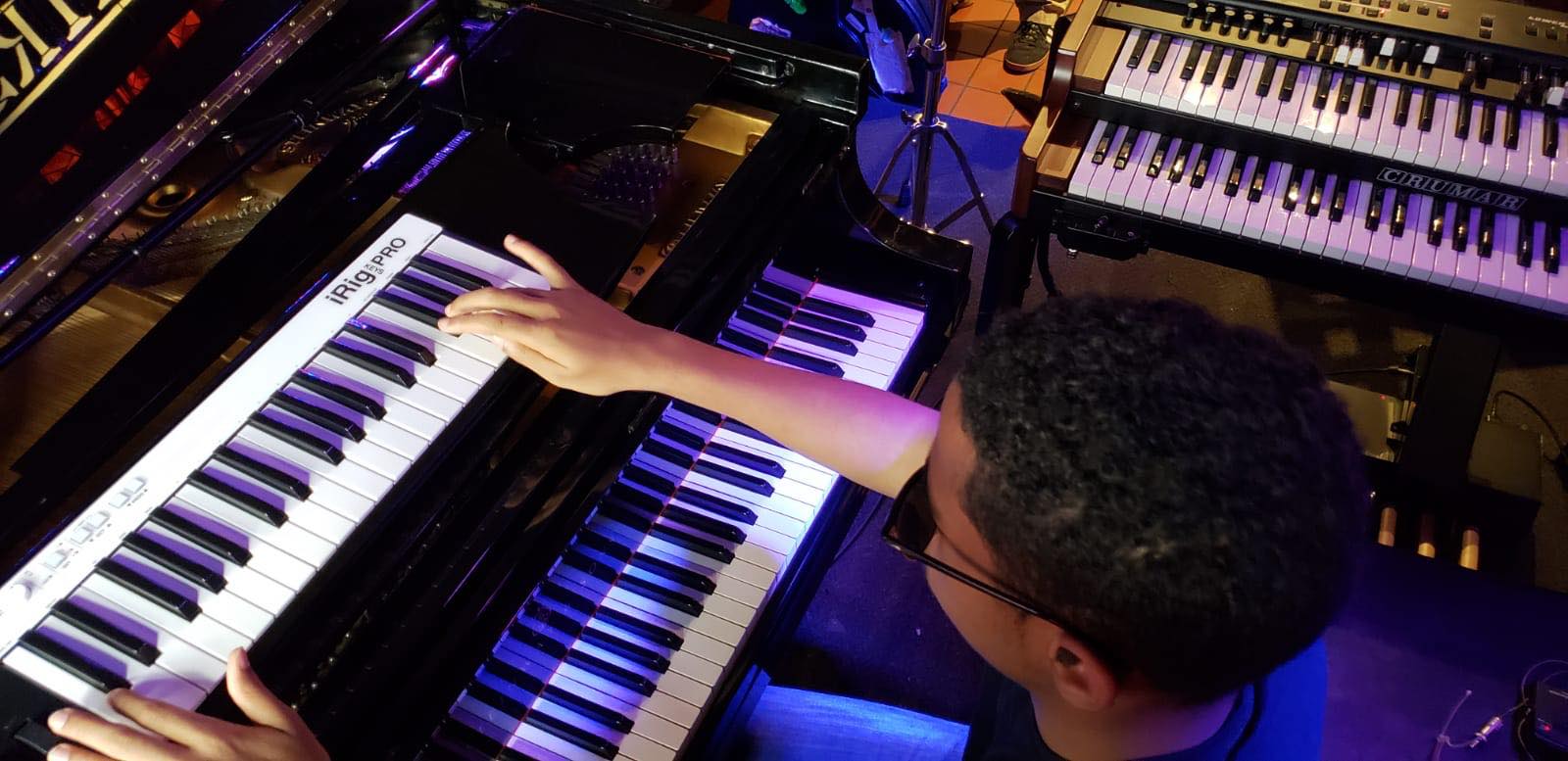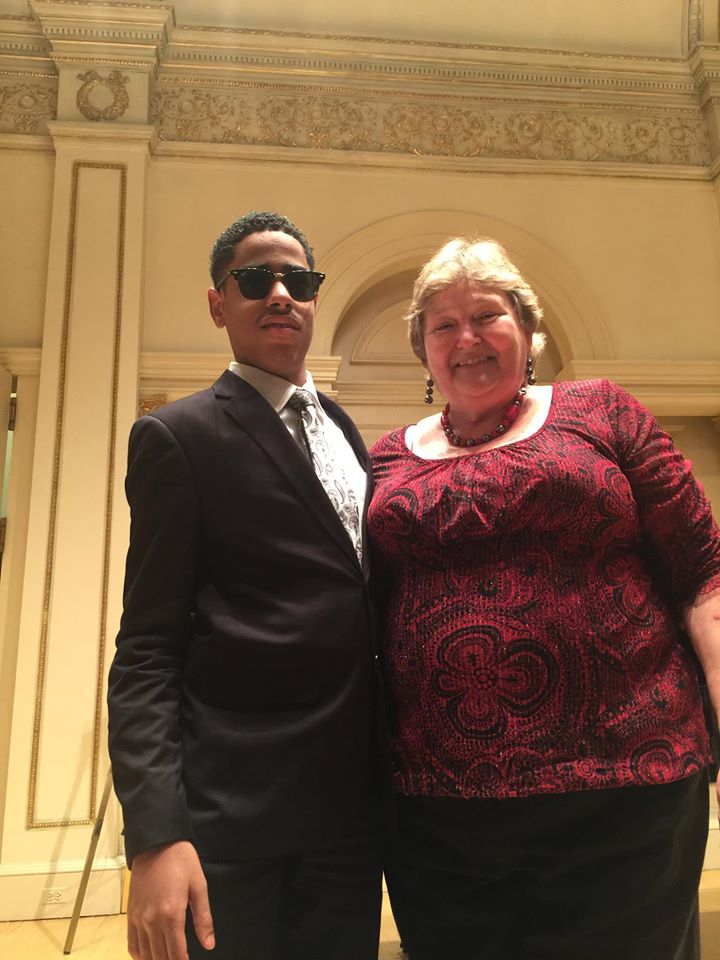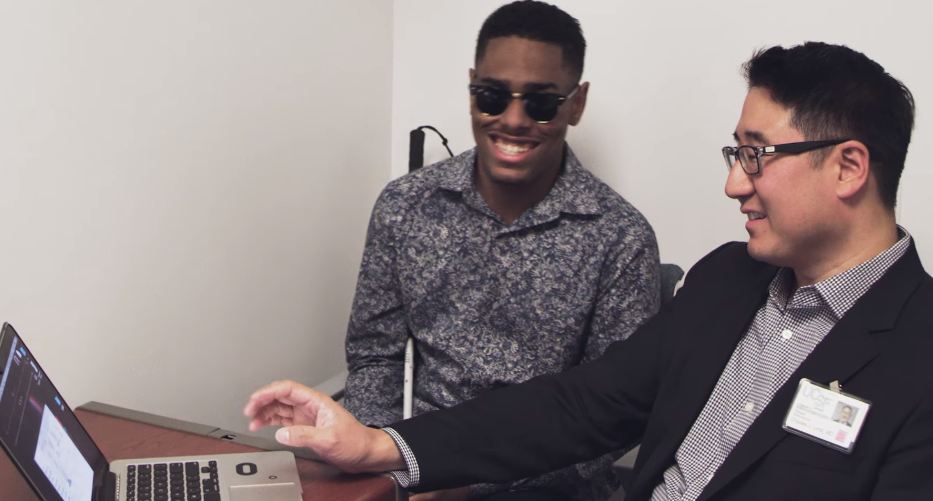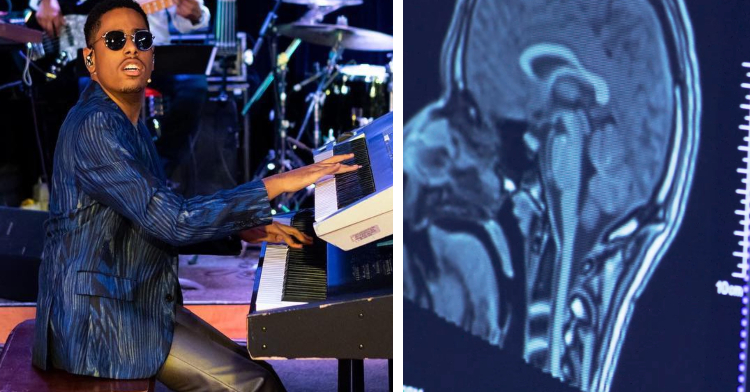Matthew Whitaker’s brain is wired for greatness.
Despite receiving a less than 50 percent chance of survival, Matthew has defied the odds – and then some! The piano prodigy is now an international star whose gift for music has left even the scientific community stunned.

Facebook
Doctors didn’t have much hope for Matthew as an infant. He was born at 24 weeks with a host of complications, including retinopathy of prematurity, a condition that left him blind. Neither his doctors nor his parents, May and Moses, were sure he’d ever walk or speak.
But Matthew reached both milestones and went on to amaze his parents by playing his first piano song at 3 years old. He’d never taken a single lesson!
“They were nursery rhymes more so than anything,” Moses told 60 Minutes. “So they weren’t that complicated. But what he was doing was complicated because most kids don’t play with both hands. And they don’t play chords and the harmonies and all of that. And Matt was doing that.”

Facebook
The boy’s talent grew even more when Dalia Sakas, a classically-trained concert pianist, agreed to teach him.
Because Matthew can’t see, he learns everything by ear, and Dalia said he can play an entire piece of music after listening to it once.

Facebook
In the years since, Matthew has performed at over 200 venues around the world. Many of his fans call him “the next Stevie Wonder,” and we can’t help but agree.
Dr. Charles Limb, a surgeon, neuroscientist, and musician, is among the countless people who marvel at Matthew’s skill. He wanted to find out what makes Matthew’s creative mind tick.
So with the family’s permission, he put Matthew in an MRI scanner at the University of California to see what would happen. During one test, Charles turned on a lecture before playing music from a band Matthew enjoys. In the doctor’s words, the difference was “remarkable.”
“His entire brain is stimulated by music,” Charles explained. “His visual cortex is activated throughout. It seems like his brain is taking that part of the tissue that’s not being stimulated by sight and … rewiring it to help him hear music.”

YouTube
This just proves what Matthew has known his whole life: Music makes him happy and helps him thrive. Thank you, Matthew, for sharing your passion with the world!
Learn more about the fascinating study in the video below, and share this story with other music lovers.
Share your story & inspire the world.
If you have an uplifting story we would love to hear about it! Share it with us here.
Want to be happier in just 5 minutes a day? Sign up for Morning Smile and join over 455,000+ people who start each day with good news.



